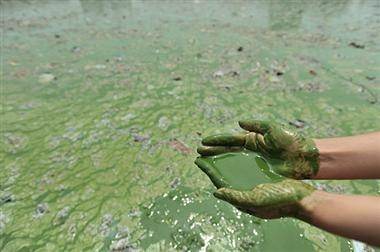Climate Change-The 3R’s, Incineration, Biomagnification and Eutrophication
So, we all know of the harmful effects of excess greenhouse gases like CO2, methane etc. but something that often comes in our minds is what we, as responsible citizens, can do to protect our Earth ? After all, we are not leaving the planet permanently any time soon. Well, today I will be talking about one of the simplest things you could do that would affect the climate positively- RECYCLE !
Recycling is definitely good for the environment, it
saves energy, helps reduce waste and also makes us more self-aware. Another
benefit of recycling is it also helps save forest and ecosystems. But I get it,
none of these directly affect you as a consumer, so why should you care? Well,
for starters, expect markets to drastically change within just 10 years,
because the effects of climate change are going to be so severe by then and
temperatures are going to be so high, that organisations will have no choice
but to act! This means that cost of commodities like plastic and prepared and
not prepared food items among other things are going to go higher. So, we might
as well get into the habit of using materials like plastic less, and when we do
use them , to make sure we recycle them and not throw away the bag after just
using it once.
You might question what good this will do, and it is a
valid question. To answer this, let me tell you about three phenomenons that
YOU can help in reducing, just by doing simple things like recycling, walking
more and eating less meat.
The first is incineration, which is basically burning
of organic waste, as you can see in the picture below. This is bad because not
only is heat energy required to burn the waste, but also the gases and ash
produced are harmful for the environment. So next time when you produce organic
waste like banana peels or food left on your plate, try making some manure out
of it, or if it is edible, you can feed it to the street dogs starving in your
locality (it is really a thing in India!). Let me also tell you why people
thing incineration is a great idea and don’t want to recycle-
Incineration is financially better than recycling because it's cheaper to burn waste for
energy than the expenses involved in recycling. But it's more expensive than disposing of trash in a landfill. Incineration reduces waste volume by up to 90 percent of the
original amount. But all this doesn’t make it not better for the
environment!
The next one is eutrophication, which is basically
when you dump too many things in the water and it becomes too rich in nutrients
and minerals. This causes algae growth which in turn blocks sunlight and
oxygen. So yeah, marine plants and animals die. I know you can’t really do
anything about the waste being dumped into water bodies, but next time, try
producing less waste.
The final one is biomagnification, which is basically
when an animal or plant eats something toxic and then another animal eats the
first animal or plant and this goes on until these toxic substances reach the
human body and affect us. By the way, this chain of eating and being eaten is
called a food chain. What can you do about it? Well, as before, produce less
waste and if you are feeling particularly well, you can make sure that the
animals and birds around you aren’t eating something they aren’t supposed to
eat, like plastic.
Finally, please don’t waste food and try
becoming a flexitarian if you eat too much meat (a flexitarian is someone who
occasionally eats meat).Why ? Because agriculture accounts for a quarter of
greenhouse gas emissions, but about a third of all food grown on this planet
never actually gets eaten. So, what ends up on your
plate makes another big difference.
Also, know that getting your protein from beef instead
of plants produces at least six times more greenhouse gases and uses 36
times more land.
A study also revealed the importance of how the food is
produced. For example, beef raised on deforested land results in 12 times more
greenhouse gases than those grazing on existing pasture.
So if you do eat meat, get it from local organic farms if
possible.


Comments
Post a Comment